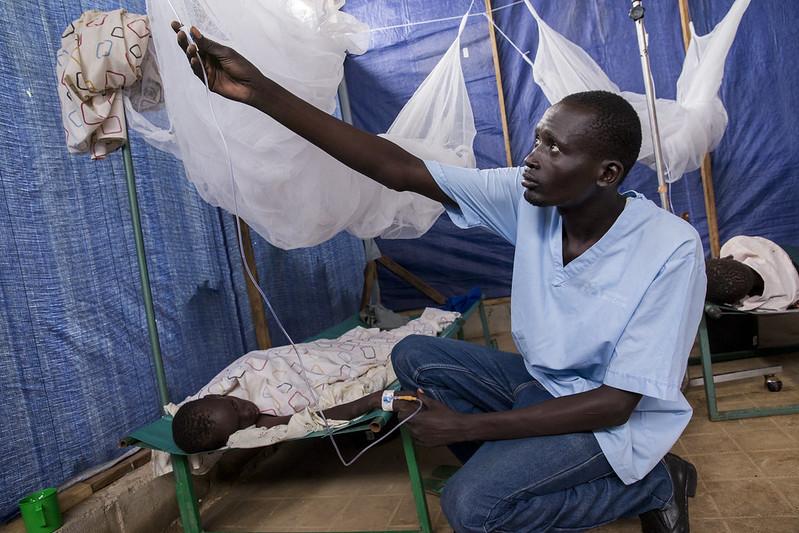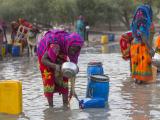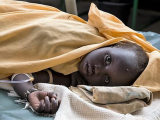An emergency consultative group from the Africa Centres for Disease Control and Prevention (Africa CDC) is meeting today to discuss a wider continental approach to battling cholera outbreaks in the region, an approach that has been helpful in addressing mpox—another infectious disease that is affecting multiple countries.
Cholera cases in Africa have risen sharply this year, with illnesses on track to pass totals recorded in 2023 and 2024.
Tapping a unified response model
In August 2024, Africa CDC declared its first ever public health emergency of continental security (PHECS) because of a complex and worsening mpox situation in Africa. Over the past several weeks, however, the outbreak has shown signs of slowing in the hardest-hit countries following the intensification of response efforts that have looped in multiple partners.
Ngashi Ngongo, MD, PhD, MPH, who leads Africa CDC's mpox incident management team and is principal advisor to the agency's director-general, said in an Africa CDC statement earlier this month that lessons learned from the mpox response, especially the need for close collaboration with other partners, will now be applied to fighting cholera, with an approach that focuses on enhanced healthcare systems, heightened surveillance, and the local manufacturing of medical products such cholera vaccine.
Africa CDC has managed the mpox response through an Incident Management Support Team (IMST) jointly led by Africa CDC and the World Health Organization, working with 26 other partners, including UNICEF, the International Committee of the Red Cross, and Gavi, the Vaccine Alliance.
Though the approach has been successful, officials recognize that bringing cholera under control will require addressing root causes, such as improving water and sanitation and recognizing how insecurity and conflict worsen the events.
Four main hot spots, some with conflict challenges
At a weekly briefing yesterday, Ngongo said though 20 African countries have reported cholera outbreaks this year, 4 of them account for 83% of cases and 92% of deaths: Angola, the Democratic Republic of the Congo (DRC), Sudan, and South Sudan. He added that the region's cholera situation remains highly concerning, especially in countries gripped by humanitarian crises and other infectious disease outbreaks.
For example, UNICEF this week sounded the alarm about the cholera situation in Sudan's Khartoum state, which has recorded more than 7,700 cases since the first of the year, 1,000 of them in children younger than 5 years old. So far, 185 people have died from their infections.
Brutal conflict in the country has displaced about 3 million people, and now that large parts of Khartoum are becoming accessible again, people are returning to damaged homes, where services such as safe water aren't available and attacks continue on power plants, which have worsened water shortages. UNICEF estimates that 1 million children live in the affected area of Khartoum. In the middle weeks of May, cholera cases rose ninefold, with an added famine threat in two locations.
UNICEF said it has delivered more than 1.6 million oral cholera vaccines to Sudan to support immunization efforts.
A surge in the DRC, starting to track downward in the most recent weeks, has been driven by insecurity, poor water and sanitation infrastructure, flooding due to heavy rains, and poor health-seeking behaviors.
Similar factors have triggered a large outbreak in Angola, where nearly 40% of cases involve children younger than 15 years old, a group that makes up 33% of all deaths from cholera, Ngongo said.
















